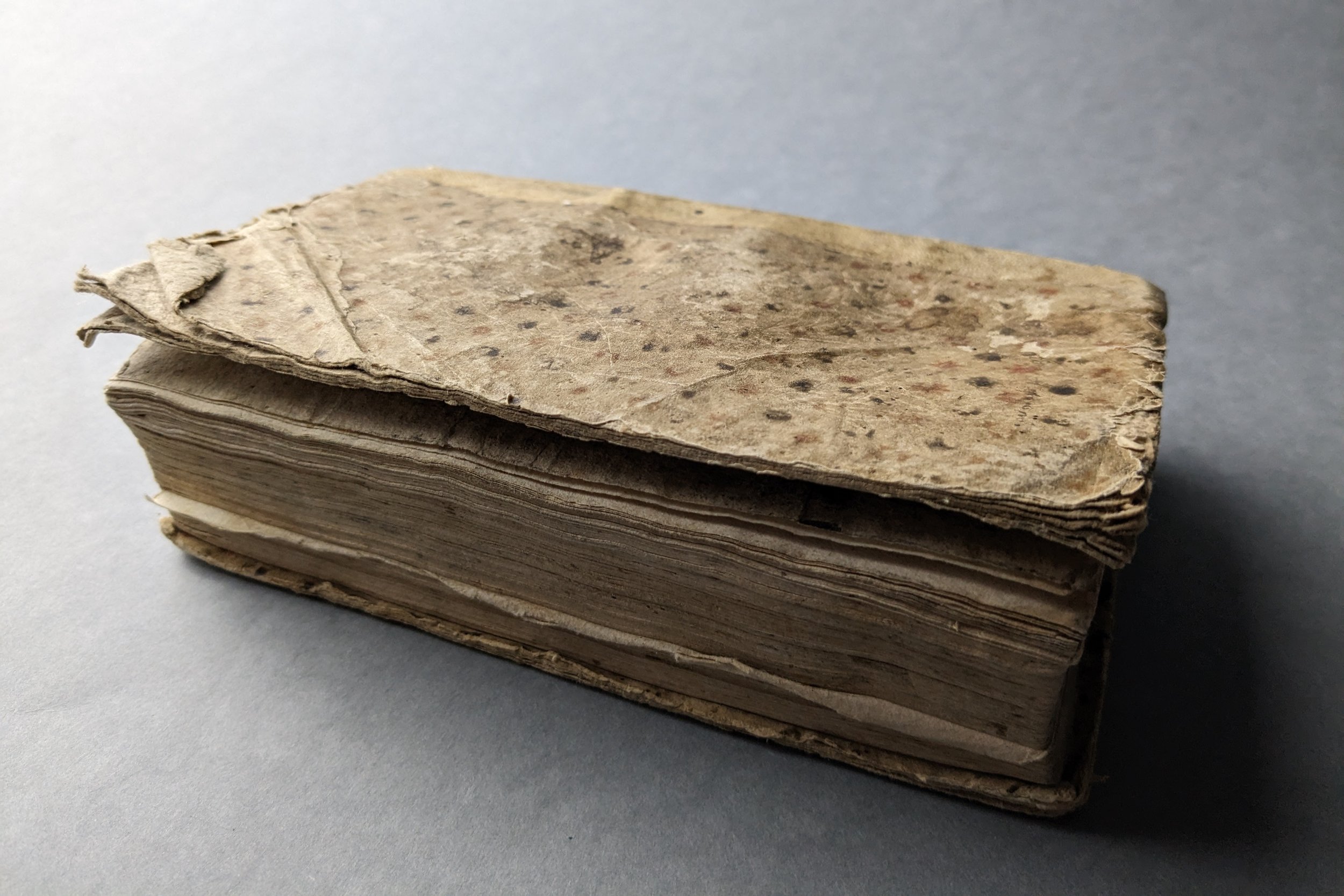1791 Quarter Vellum & Paste Paper Binding
Brief Description:
The volume is an octavo bound in quarter vellum with spotted paste paper sides over laminated paper boards. The textblock is composed of handmade laid paper. A single fold-out plate is present. Endbands are present at head and tail, appearing lightly tied down and laced into the boards. Sewing slips are adhered to the inner board surface beneath the pastedowns.
Brief Condition Assessment
Vellum spine is deformed and heavily creased; detached from the spine at the head of the book
Boards are cockled and the laminated structure is delaminating, particularly at the corners and edges.
Paste paper covering is worn with losses and lifting.
Tidelines are present throughout the textblock.
Endpapers show surface dirt and localised staining.
Overall evidence of historical water damage.
Brief Treatment Description
out plate, and consolidate areas of board delamination. A minimal intervention approach was adopted throughout to preserve original features and surface character while improving structural integrity.
Surface cleaning was carried out across the covers and textblock using dry cleaning methods to reduce loose surface dirt without disrupting fragile media or coverings. Localised in-situ humidification was applied to soften and flatten creased areas within the textblock, including multiple dog-eared corners and the fold-out plate, which was particularly distorted.
The vellum spine, which had become deformed and partially detached due to historic water damage, was reshaped using 2% agarose gel under controlled humidity. This allowed gradual rehydration and reformation of the vellum without over-wetting. Following re-shaping, the spine was dried under light restraint to encourage dimensional stability.
Areas of delamination along the board edges and beneath the paste paper covering were consolidated using wheat starch paste and toned 1.5 gsm Tengujo tissue. This secured vulnerable layers while maintaining the visual integrity of the original covering materials.
To support the object in storage and help gently constrain the vellum over time, a custom-made clamshell box was constructed using archival box board. The box was designed to provide both structural support and environmental buffering.
Materials Used
2% agarose gel
Tengujo tissue (1.5 gsm)
Wheat starch paste
Archival box board
Skills Demonstrated
Vellum reshaping using agarose gel and controlled drying techniques
In-situ humidification and flattening of paper distortions
Consolidation of delaminating board structures and cover materials
Decision-making based on minimal intervention principles
Design and construction of a custom clamshell box for protective housing
Outcome
The volume is now structurally sound and more stable for handling, with improved visual legibility of the textblock and fold-out. Original features, including the paste paper covering and vellum spine, were preserved and remain prominent. The new housing offers long-term protection and gentle restraint for the reformed vellum.




Before & After Photos









